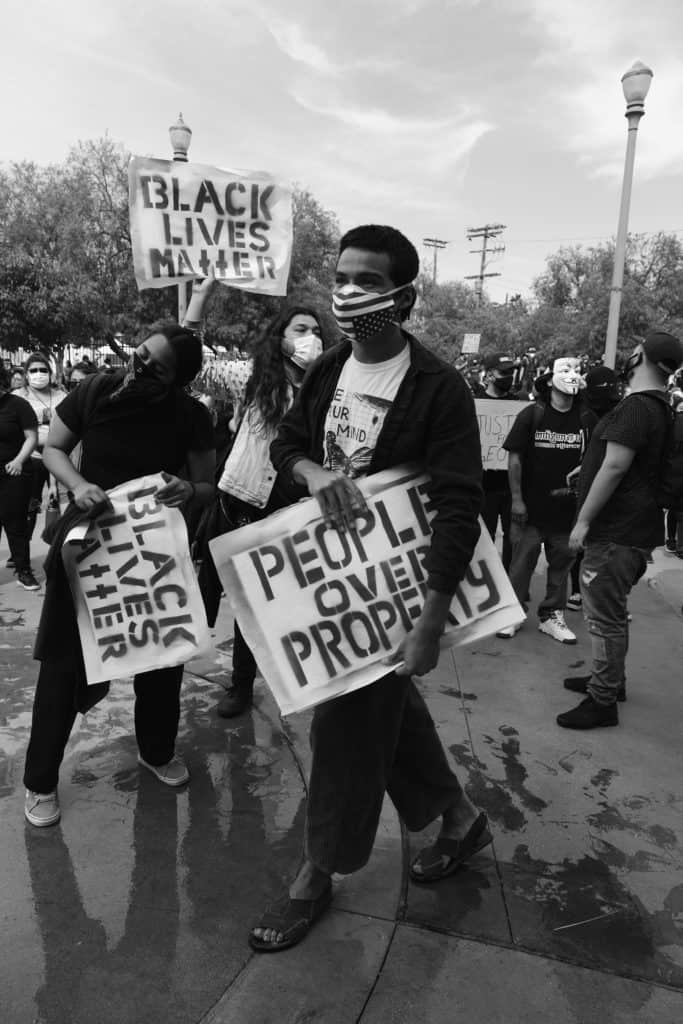Both rage and sadness are reasonable responses to the police brutality we have witnessed against George Floyd, Breonna Taylor and countless others.
This is a painful moment for America, but especially and uniquely for African Americans who live with the threat of violence, injustice and police brutality every day, for communities where systemic racism undermines everything, and for a nation that has talked about these issues for too long and yet has been incapable of facing or correcting inequality that began with slavery.
It’s painful here at NCRC, and for our staff. Many of our staff are not okay. This is personal.
NCRC works for economic and social justice, and moments like this force us to confront not only our impact, good intentions and aspirations, but also our failures too. We are soul-searching. How should we change and what should we do, as an institution, to make more progress?
Whatever the intent, it is a fact that our economic and governmental systems protect and help people who are rich and powerful, and they create disadvantages, obstacles and injustices for people who are not. The worst and most heinous expression of this fact is systemic racism, and in particular the callous and brutal violence against Black people that we have witnessed recently, and long into the past.
NCRC addresses economic inequality as the systemic cause of many injustices. Poverty is also brutality. We work to change government policies and private sector practices so that capital and opportunities for a good life are available to everyone in all communities, not just the rich ones, not just the White ones. We take on powerful interests that perpetuate economic inequality, and that work has led to systemic shifts by key institutions, including banks and government agencies, and large-scale investments and services across the nation.
And yet: The scale of our impact, measured in tens of billions of dollars invested in communities that need it, in thousands of people who have been trained, received housing or small business counseling, started businesses or purchased homes thanks to programs, services, investments and policy changes championed by NCRC and its members, feels tiny when you see yet another video of yet another Black man murdered by yet another police officer.
Our feelings of anger and injustice are valid. People should be in the streets. The state of our nation demands protest. We are hopeful that the protests will have some positive impact, and we will do what we can to support that.
Moments like this remind us that we have a privilege to do the work we do. It’s a privilege that comes with, above all else, a continual responsibility to be responsive to what is happening in communities across the country.
Giving voice to anger and sadness is necessary.
We support protest as a strategy. The Civil Rights Act of 1968 was passed just days after Dr. King’s death, following days of massive protests, most of them not necessarily peaceful.
But protest alone isn’t enough. Those days of protest followed years and decades of organizing, followed a movement that was strong and sustained. It is certainly true that now is a moment, and an important moment, but it is also a moment that has lasted now for years, for decades, for the course of our history.
What else but rage when nothing changes? Even rage feels like a broken record. It’s long, long past time to fix America, and that is clearly a daunting challenge for all of us. The shadows of history darken the present.
We are going to need to build something stronger to be effective in addressing economic inequality, and its attendant sidekicks: police brutality and the criminal justice system. Our urgency to do that has to be sustained, not for a day or a week, but for a lifetime. We need to continue to organize, advocate and lead the movement for a Just Economy. We need to end the racial wealth divide.
For now, we mourn, we protest, and we will lift our voices and those of Black leaders and organizers of all races on the front lines of the fight for economic justice, social justice and human rights.
Like wealth and opportunity, the distribution of pain and grief is unequal. But they are shared, and the solutions must be too.
#blacklivesmatter #justeconomy #afterthis
Jesse Van Tol is NCRC’s CEO.
John Taylor is NCRC’s Founder and President.



